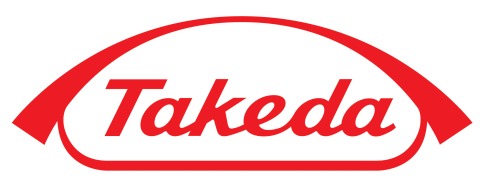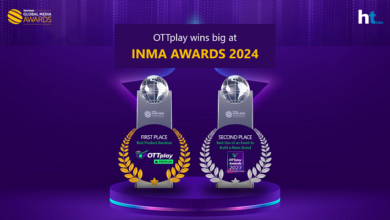
Osaka, Japan:
- More Than Twice As Many Transplant Recipients With Refractory, With or Without Resistance (R/R), Cytomegalovirus (CMV) Infection/Disease Treated With Maribavir, an Oral Antiviral Compound, Achieved CMV Viremia Clearance As Compared to Patients Treated With Conventional Antiviral Therapies1
- Phase 3 Clinical Trial Also Demonstrated Fewer Treatment-limiting Adverse Events Leading to Treatment Discontinuation in Patients Treated With Maribavir Compared to Conventional Antiviral Therapies1
- Maribavir Is Also Under Investigation for the First-line Treatment of CMV in Hematopoietic Cell Transplant Recipients in an Ongoing Phase 3 Clinical Trial
- Takeda is Committed to Advancing the Care of These Vulnerable Transplant Recipients, and if Approved, Maribavir Will Be the First and Only Treatment Indicated for Post-transplant R/R CMV Infection/Disease
Takeda Pharmaceutical Company Limited (TSE:4502/NYSE:TAK) (“Takeda”) today at the 2021 Transplantation & Cellular Therapy (TCT) Meetings Digital Experience announced new, late-breaking Phase 3 data from the TAK-620-303 (SOLSTICE) trial, for the investigational drug TAK-620 (maribavir) which met its primary endpoint of superiority compared to conventional antiviral therapies (investigator assigned treatment, [IAT], one or a combination of ganciclovir, valganciclovir, foscarnet or cidofovir) in transplant recipients with refractory, with or without resistance (R/R), cytomegalovirus (CMV) infection/disease. Overall, more than twice as many (55.7%; n=131/235) transplant recipients with R/R CMV infection/disease treated with maribavir achieved confirmed CMV viremia clearance at Study Week 8 (end of treatment phase), the study’s primary endpoint, as compared to 23.9% (n=28/117) of those on conventional antiviral therapies (95% CI: 32.8%, 22.8–42.7; p<0.001).1*†‡
The study’s key secondary endpoint was met by demonstrating maribavir’s improvement over conventional therapies in clearance of CMV viremia and associated symptom control maintained through Study Week 16.1
Transplant recipients receiving maribavir exhibited lower incidence of treatment-related toxicities common with conventional antiviral therapies. Those receiving maribavir experienced lower rates of treatment-related neutropenia vs. valganciclovir/ganciclovir (1.7% [4/234] vs. 25% [14/56]) and acute kidney injury vs. foscarnet (1.7% [4/234] vs. 19.1% [9/47]). Any treatment-emergent adverse events (TEAEs) were 97.4% (228/234) for maribavir and 91.4% (106/116) for the conventional therapy group. TEAEs leading to study drug discontinuation were 13.2% (31/234) in the maribavir group and 31.9% (37/116) in the conventional therapy group. Two treatment-related serious TEAEs led to death (1 patient per treatment group).
“We are pleased that the SOLSTICE trial, which compared maribavir to available antiviral treatments for transplant patients with refractory/resistant cytomegalovirus infections, met its primary endpoint. More than half the patients who received maribavir were able to have their CMV infections treated successfully for 8 weeks and experienced less neutropenia and acute kidney injury compared to currently available treatments valganciclovir/ganciclovir and foscarnet, respectively,” said Francisco M. Marty, MD, Associate Physician, Brigham and Women’s Hospital, Associate Professor of Medicine, Harvard Medical School. “These new findings are a promising advance in the quest for potential new treatments of CMV for transplant recipients.”
Key efficacy findings presented by Dr. Marty, a SOLSTICE trial investigator, included:
Subgroup Analyses of Primary Endpoint (Confirmed CMV Clearance at Week 8 [Randomized Set])1
- 55.6% of solid organ transplant (SOT) recipients with R/R CMV infection/disease receiving maribavir achieved confirmed CMV viremia clearance compared to 26.1% of those on conventional therapies.
- 55.9% of hematopoietic cell transplant (HCT) recipients with R/R CMV infection/disease receiving maribavir achieved confirmed CMV viremia clearance compared to 20.8% of those on conventional therapies.
- A greater proportion of transplant recipients with R/R CMV infection/disease receiving maribavir achieved CMV clearance at week 8 regardless of baseline viral load category (62.1% and 43.9% of patients receiving maribavir vs. 24.7% and 21.9% receiving conventional therapies, in low [<9,100 IU/mL] and intermediate/high [≥9,100 IU/mL] baseline viral load respectively).
Analyses of Key Secondary Endpoint (CMV Clearance and Symptom Control Followed by Maintenance Through Study Week 16 [Randomized Set])1
- 18.7% (44/235) of transplant recipients treated with maribavir maintained CMV viremia clearance and symptom control through Study Week 16 compared to 10.3% (12/117) of those treated with conventional therapies (p=0.013).
“We are excited by the results of the SOLSTICE trial, which were shared in greater detail with the scientific community at the 2021 TCT Meetings. This is an important development for transplant patients who are at increased risk of CMV, which if not controlled, can pose grave challenges. Maribavir, if approved, has the potential to redefine treatment for post-transplant refractory, with or without resistance, CMV,” said Obi Umeh, MD, Vice President and Maribavir Global Program Leader, Takeda.
Disclaimer: This content is distributed by Business Wire India.



